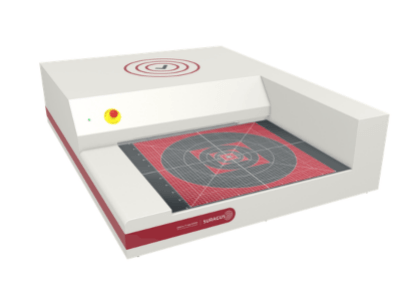Resistivity is the basic characteristic that quantifies the strength of a given material's resistance to current. The resistivity of the material affects the characteristics of the manufactured device, such as capacitance, series resistance, threshold voltage and other parameters. The resistivity of the wafer depends on the semiconductor type, doping level, manufacturing process, the location of the wafer in the ingot, and the wafer itself.
Over the years, manufacturers have been trying to improve the change in resistivity from center to edge. Nevertheless, the change in resistivity still exists. Alfa Chemistry is equipped with advanced technology and high-tech equipment, and can provide customers with wafer resistivity testing services for a variety of applications. You can rest assured of our test results.
Our testing methods include, but are not limited to, the following:
Measuring Resistivity With Four-Point Probe Method
The Four-Point Probe Method is one of the most common methods for measuring the resistivity of thin flat materials, which involves contacting four equidistant probes with a material of unknown resistance. A DC current is generated between the two external probes, and the voltmeter measures the voltage difference between the two internal probes. The resistivity is calculated based on geometric factors, source current and voltage measurements.
 Figure 1. Four-point probe resistivity test circuit.
Figure 1. Four-point probe resistivity test circuit.
The volume resistivity formula is as follows:

Measuring Resistivity By Eddy Current
If the thickness of the sample is greater than the penetration depth of the induced current, the eddy current method can also determine the resistivity. The eddy current test method is a non-destructive evaluation method. The eddy current method uses a small tip distance, and the penetration depth of the current is much smaller than the 4PP setting. The depth of the eddy current penetrating into the material is affected by the frequency of the eddy current, the conductivity and the magnetic permeability of the sample.
Tektronix 4200A-SCS Parameter
Alfa Chemistry uses the 4200A-SCS with a four-point collinear probe to measure the resistivity of semiconductor materials. 4200A-SCS has high input impedance and can be used for resistance of various materials including high-resistance semiconductor materials.

EddyCus®TF Map 5050CT
Alfa Chemistry uses EddyCus®TF Map 5050CT, an eddy current mapping system, to conduct conductivity testing of semiconductor wafers. The system can be equipped with various EddyCus sensors to perform high-resolution or high-penetration conductivity imaging and defect detection by using differential probes.
If you do not find the product or would like to request a quote, please contact us.